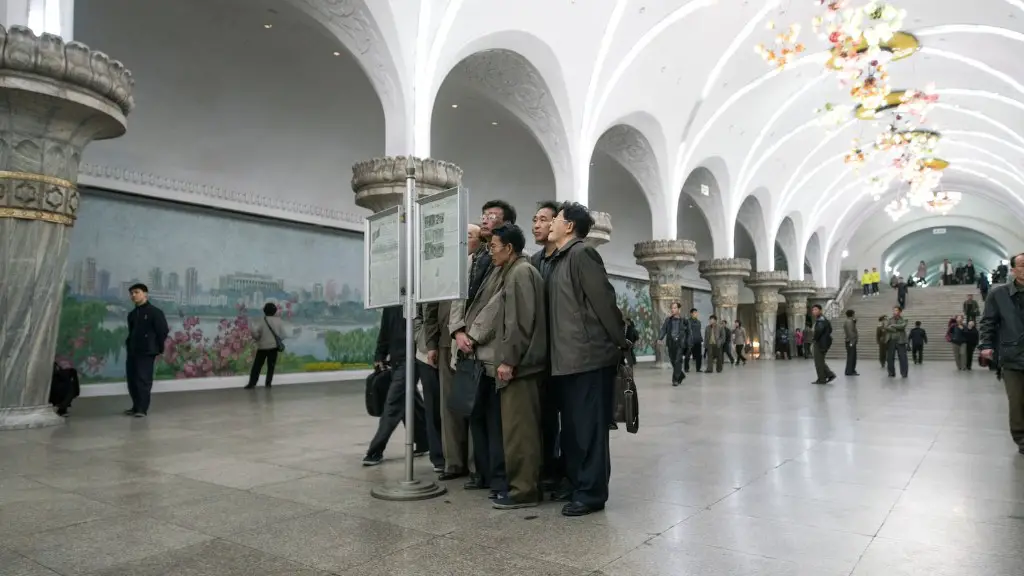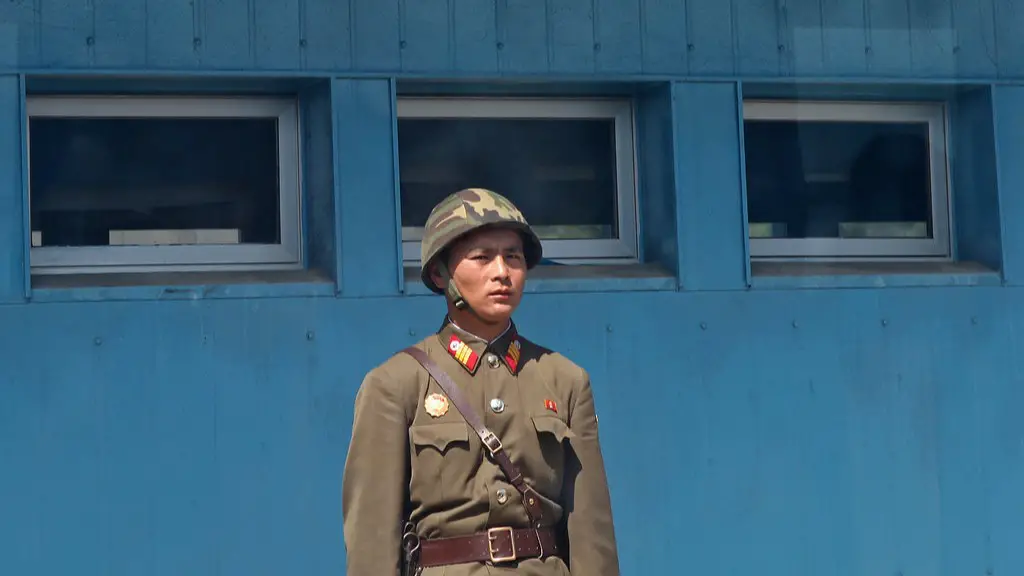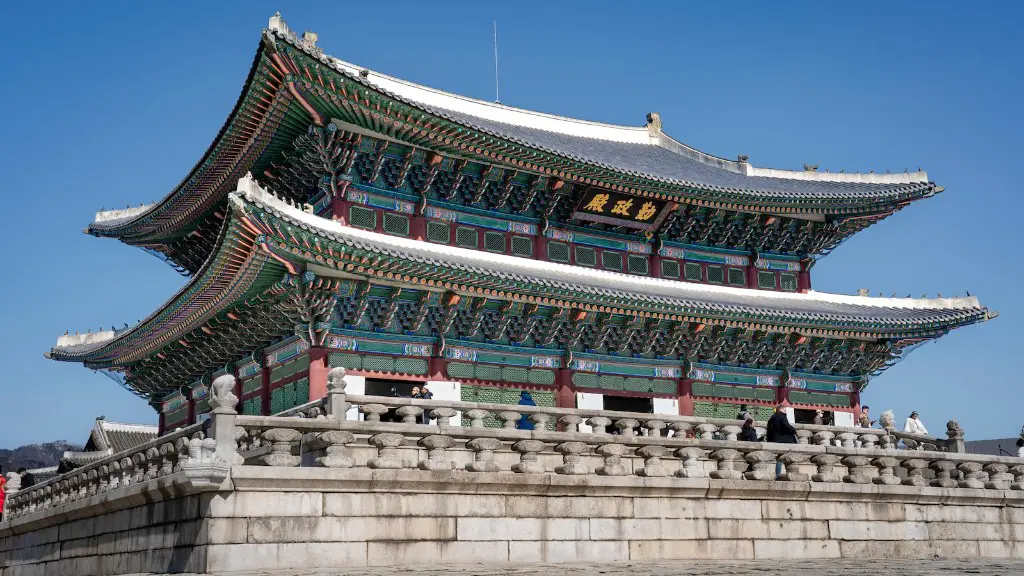Background
China is North Korea’s largest trading partner and one of its few allies in the world. North Korean trade with China accounts for around 90 percent of its total economy, with China providing essential resources and support, especially in times of need. Since China is North Korea’s main benefactor, the question of whether China will help North Korea has been raised by observers. There is no clear answer to this question, as the situation is complex, with different levels of potential possible Chinese interventions.
China’s Current and Historical Relationship with North Korea
China has historically provided support and resources to North Korea, and this has been especially evident over the past few decades. Beijing provided military and economic assistance to Pyongyang during the Korean War and continue to provide diplomatic support for the North Korean government. China has supplied food, energy, and consumer goods to North Korea, helping it to cope with decades of economic stagnation. As a result of this long-standing relationship, the Chinese government has gained a certain amount of influence over North Korea, and there have been various attempts by China to help the country modernise and become more integrated into the international community.
Potential Chinese Intervention
China could intervene in North Korea by providing more economic and diplomatic support. It could provide additional food and consumer goods to help North Korea’s citizens, as well as greater investment in infrastructure, such as roads and power plants. China could also support North Korea diplomatically, helping it to engage in negotiations with its neighbours to peacefully settle any disputes. China has an interest in maintaining peace on the Korean Peninsula and this could be achieved through increased diplomatic engagement and economic intervention.
Limitations of Chinese Intervention
It is important to consider the limitations of Chinese intervention in North Korea. The Chinese government is unlikely to completely abandon the North Korean government and its current policies. Beijing is likely to continue to support Pyongyang, but there may be some limits to how far it is willing to go. Beijing needs to be careful not to antagonise the international community, and it has also expressed its concerns about North Korea’s nuclear programme and its missile tests.
Why China Might Refuse To Help North Korea
China might refuse to help North Korea for a variety of reasons, some of which are political. There have been reports that the Chinese government is displeased with North Korean leader Kim Jong Un and his approach to foreign policy and that it is unwilling to provide further support. Moreover, China’s relationship with North Korea is increasingly strained as the two countries have divergent interests in the region.
Political and Economic Consequences of Chinese Intervention
Any Chinese intervention into North Korea would have political and economic consequences. Chinese intervention could potentially help to stabilise the Korean Peninsula and reduce tensions between North and South Korea, but it could also lead to increased tensions between China and other countries in the region. Moreover, increased Chinese involvement could lead to a greater Chinese influence in the region and an increased Chinese economic presence.
International Cooperation to Help North Korea
While China may be reluctant to intervene in North Korea, it is possible that international cooperation could help to achieve the same ends. International cooperation could take the form of economic or diplomatic assistance and could help to stabilise the situation in North Korea. Moreover, an international coalition of countries could help to pressure North Korea to change its policies and ways of dealing with the outside world.
The Impact of Western Sanctions on North Korea
Western sanctions have had a significant impact on North Korea and its economy, and they may have contributed to redoubling Chinese efforts to help North Korea. Sanctions have disrupted North Korea’s economy and have limited its access to the international markets, making Chinese aid even more important. In addition, the sanctions have caused North Korea to turn to China for assistance, making it more likely that China will provide help in some form or another.
North Korea’s Willingness to Accept Chinese Intervention
North Korea’s willingness to accept Chinese intervention is also a factor that should be considered. North Korea’s leaders are likely to be reluctant to accept large amounts of Chinese help, as they wish to maintain their independence. Moreover, North Korea has been known to be resistant to any interference in their internal affairs and would be likely to reject any attempt by China to intervene in its domestic politics.
International Perception of North Korean Regime and its Impact on China’s Intervention
The international community’s perception of the North Korean regime is also a factor that could influence China’s willingness to help. If the international community believes that North Korea is not willing to reform and is continuing to violate international norms and laws, then China is likely to be less willing to intervene in North Korea due to the potential backlash it could receive.
Risk Analysis of Chinese Intervention
China’s decision to intervene in North Korea or not requires a risk assessment. On one hand, Chinese intervention could have a positive impact on the situation and help to stabilise the region. On the other, there is a risk that China’s involvement could escalate tensions or disrupt the delicate balance of power in the region. Therefore, any decision by China must carefully weigh the risks and benefits before intervening.
China’s Leverage in North Korean Crisis
Given their close relationship and trade relations, China is likely to use leverage in order to influence the situation with North Korea. Beijing could use carrots and sticks, including the potential to offer resources and other assistance or to enforce sanctions, in order to convince North Korea to change its behaviour. Moreover, China has its own interests in the region and could use its leverage to protect its own interests while promoting regional stability.
China’s Incentives to Help North Korea
China’s incentives to help North Korea are also important to consider. China could be motivated to help due to its strategic interests in the region and its desire to maintain stability. Additionally, the Chinese government may be compelled to provide assistance to North Korea due to humanitarian reasons, or because it feels the need to maintain its influence and power in the region.
Great Power Competition and Chinese Intervention in North Korea
China’s decision to intervene in North Korea may be also related to the great power competition in East Asia. As the US seeks to increase its influence in the region and strengthen its alliances, it is likely that China will seek to counter this by intervening in North Korea. This could be a strategic move in order to ensure Chinese influence and the preservation of the status quo in the region.
China’s Internal Political Considerations Impact on North Korea
China’s internal political considerations are also likely to impact its decision to intervene in North Korea. As China transitions to a market economy, its leaders may wish to maintain political stability at home. Therefore, they may opt to stay out of North Korean affairs, or to intervene in a limited way, in order to avoid any negative repercussions at home.



